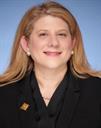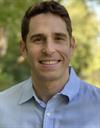Psychedelics: Ethical and Practical Considerations - 2023 Interim Meeting Ethics Forum
Presented by the Massachusetts Medical Society’s Committee on Ethics, Grievances, and Professional Standards, the Ethics Forum alerts physicians to the ethical implications of issues that arise in daily practice and offers information on issues at the
intersection of ethics, medicine, and professionalism. The Ethics Forum at the Massachusetts Medical Society’s 2023 Interim Meeting (recorded on November 6, 2023) discussed the ethical and practical considerations of the use of psychedelics in medicine.
Faculty

Rebecca
Weintraub Brendel, MD, JD
Director, Master’s Degree Program, Harvard
Medical School Center for Bioethics
Director of Law and Ethics, Center for Law, Brain, and Behavior, Massachusetts
General Hospital
Dr. Brendel is director of the Master’s Degree Program at the Harvard Medical School Center for Bioethics, of which she is also an associate director. She bases her clinical work in psychiatry at Massachusetts General Hospital where she is the director
of Law and Ethics at the Center for Law, Brain, and Behavior. She is Assistant Professor of Psychiatry at Harvard Medical School.
Rebecca W. Brendel, M.D., J.D. is the president-elect of the American Psychiatric Association, chair of the Massachusetts Medical Society Committee on Ethics, Grievances, and Professional Standards, and a member of the American Medical Association (AMA)
Council on Ethical and Judicial Affairs.
Dr. Brendel earned her medical degree from the University of Chicago Pritzker School of Medicine and her law degree from the University of Chicago Law School. She completed her psychiatry residency at Massachusetts General and McLean Hospitals, a forensic
psychiatry fellowship at Massachusetts General Hospital, and an ethics faculty fellowship at the Edmond J. Safra Center for Ethics at Harvard. She is admitted to the Massachusetts Bar.

Gregory Barber, MD
Psychiatrist specializing in psychodynamic
psychotherapy and psychopharmacology
Washington Baltimore Center for
Psychoanalysis
Dr. Barber is a board-certified psychiatrist with extensive training and experience in psychotherapy and psychiatric medications. He primarily practices psychodynamic psychotherapy, an open-ended treatment which gives patients the freedom to explore how
early life experiences and relationships affect their mind today. He draws from cognitive and dialectical behavioral therapies, and from mindfulness practices.
Dr. Barber graduated with a degree in philosophy from the University of Pennsylvania and completed the pre-medical studies program at Georgetown University. He attended medical school at the University of Maryland and stayed in Baltimore to complete my
residency training at the University of Maryland/Sheppard Pratt Psychiatry Residency Program. Aside from his work in private practice, he is also a member of the American Psychiatric Association's national Ethics Committee, where he has authored guidelines
on the use of psychedelic psychotherapies in clinical practice. Outside of my private practice, Dr. Barber conducts research in psychedelic psychotherapies. Dr. Barber is currently affiliated with the Washington Baltimore Center for Psychoanalysis,
where he remains engaged in continuing education in psychoanalysis.

Mason Marks, MD, JD
Law Professor, Florida State University College
of Law
Senior Fellow, Petrie-Flom Center at Harvard Law School
Jane Mason Marks, MD, JD is the Florida Bar Health Law Section Professor at the Florida State University College of Law. At Harvard Law School, he is the senior fellow and project lead of the Project on Psychedelics Law and Regulation (POPLAR) at the
Petrie-Flom Center for Health Law Policy, Biotechnology, and Bioethics. He is also a visiting fellow at the Information Society Project (ISP) at Yale Law School.
Marks analyzes drug policy, data protection law, and FDA regulation. His academic writing has been published in JAMA, Nature Medicine, the Duke Law Journal, Harvard Law Review Forum, and other leading journals of law and medicine. His legal commentary
has been featured by the New York Times, Wall Street Journal, Washington Post, The Economist, ABC News, Fox News, Bloomberg News, NPR, and other leading outlets.

Carmel Shachar, JD, MPH
Assistant Clinical Professor of Law and Faculty
Director of the Health Law and Policy Clinic, Center for Health Law and Policy
Innovation, Harvard Law School
Carmel Shachar, JD, MPH, is Assistant Clinical Professor of Law and Faculty Director of the Health Law and Policy Clinic at the Center for Health Law and Policy Innovation at Harvard Law School (CHLPI).
Ms. Shachar focuses her scholarship on law and health policy, in particular the regulation of access to care for vulnerable individuals, the use of telehealth and digital health products, and the application of public health ethics to real world questions.
Her work has been published in leading health and law journals, including the New England Journal of Medicine, JAMA, Nature Medicine, and the Journal of Law and the Biosciences, and she has been interviewed by major media outlets, such as BBC News,
Politico, CNN, and Slate.
Previously, Ms. Shachar was the Executive Director of the Petrie-Flom Center for Health Law Policy, Biotechnology, and Bioethics at Harvard Law School. During her time at the Petrie-Flom Center, she was responsible for oversight of the Center’s sponsored
research portfolio, event programming, fellowships, student engagement, development, and a range of other projects and collaborations. During her tenure, she designed, recruited for, and launched both the Center’s Health Care General Counsel Roundtable
and the Center’s Advisory Board. She was also involved heavily with the Center’s Project on Precision Medicine, Artificial Intelligence, and the Law, and its Diagnosing in the Home Initiative.
Ms. Shachar was previously a Clinical Instructor on Law at the Health Law and Policy Clinic, where she helped lead CHLPI’s access to care and Affordable Care Act implementation work. Ms. Shachar focused on analyzing and translating health policy issues
and opportunities for a broad range of audiences, including many federal and state-level health policy coalitions. Ms. Shachar also practiced health care law at Ropes & Gray, LLP in Boston, Massachusetts.
Course Objectives
Upon
completion of this activity, learners should be able to:
- Identify the legal and ethical background of psychedelic use in clinical settings;
- Describe the practical and ethical contours of psychedelic use in medical and non-medical clinical settings; and
- Appreciate the unique ethical and implementation features of psychedelic use as compared to other innovative psychoactive interventions.
Course Fees
Massachusetts Medical Society (MMS) Physician Member: $40.00
MMS Resident/Student Member: Free
Non-Member Physician: $90.00
Non-Members Resident/Student: $15.00
Allied Health Professional/Other: $32.00
Format & Estimated Time to Complete
Video recording, 1 hour
Accreditation and Credit Information
Accreditation Statement
The Massachusetts Medical Society is accredited by the Accreditation Council for Continuing Medical Education (ACCME) to provide continuing medical education
for physicians.
AMA Credit Designation Statement
The Massachusetts Medical Society designates this enduring material for a maximum of 1.00 AMA PRA Category 1
Credit™. Physicians should claim only the credit commensurate with the extent of their participation in the activity.
This activity meets the criteria for the Massachusetts Board of Registration in Medicine for risk management study.
National Commission on Certification of Physician Assistants (NCCPA)
Physician Assistants may claim a maximum of 1.00 Category 1 credits for completing this activity. NCCPA accepts AMA PRA
Category 1 Credit™ from organizations accredited by ACCME or a recognized state medical society.
Exam/Assessment: A score of 70% or higher is required to receive AMA PRA Category 1 Credit™.
Activity Term
Original Release Date: November 21, 2023
Review Date (s): N/A
Termination Date: November 21, 2026
System Requirements
Desktops/Laptops
Windows 10
Mac OSX 10.6 higher
Most modern browsers including:
IE 11+
Firefox 18.0+
Chrome latest version
Safari 12+
Mobile/Tablet
iOS devices beginning with OS version 10 or higher (includes, iPhone, ipad and iTouch devices)
